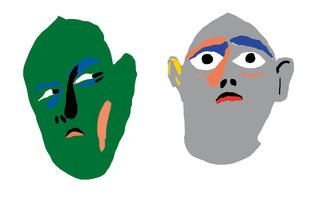Thank you, Arjun Sambhi, for such an important question! I will do my best to capture its complexity and implications.
Imagine Juliet, a white American philosophy professor. As many academics, Juliet is liberal and fiercely against racism in any shape or form. She is informed of systemic racism in American society, and she is a supporter of contemporary civil rights movements. She sincerely believes that racism is wrong. But her behavior seems to contradict her professed beliefs. When an African American student writes a brilliant essay or makes an insightful comment, Juliet looks more surprised than she would otherwise. When waiting for the bus, she looks much more uncomfortable if she is alone with an african american man than she would otherwise. In other words, she says one thing and does another.
This example shows an important characteristic of being racist. Racism refers to a specific attitude when interacting with others and the world. It makes sense to talk about racism because racism is evident, first and foremost, in one’s utterances and behavior. One could say that to be racist is a disposition: it is a characteristic of a person’s mind that becomes evident to others under certain material conditions; in this case, interaction with or discourse about people of different ethnicities. In this respect, you can compare a person being racist to a glass being fragile: fragility is a characteristic of glass, but it manifests only under certain conditions, such as falling on a hard surface. You can easily imagine a fragile glass that never broke; for you can keep it safe in a cupboard and handle it carefully and generally protect it.
Can one say the same about racist thoughts? Can one have racist thoughts without being racist? It is a possibility, albeit a remote one. One can imagine a person so self-disciplined as to keep all of her thoughts to herself without ever showing them, in the same way an extremely passionate collector may keep all their memorabilia in a safe. But I think our minds are not as secluded as many tend to think, and that to keep one’s beliefs about the world safely locked away simply isn’t realistic. In the words of comedian Roy Wood Jr.: “Racism never stays at the racist person’s house. Sooner or later, racism catches an Uber and comes to your doorstep.” Racist thoughts are expressed in behavior, and we call people racist to make sense of such behavior. And in many instances, as with Juliet above, our own thoughts and feelings are more evident to others than they are to ourselves.
To conclude, I think that the capacity for an infallibly clear-cut separation between mind and world, thoughts and behavior, is not realistic. This is particularly evident in the case of racist thoughts, because certain professed beliefs can actually promote behavior that contradicts them. To use a formula known by any Facebook user: “I’m not racist, but…”. Behavior embodies one’s beliefs and state of mind, and trying to make such a clear cut separation can cause people to downplay or try to justify actions that contradict what is really on their minds, which, sooner or later, will make itself plain.
What do you think? Can racist thoughts ever stay just thoughts? Let us know in the comments.
And, as always, if you have a question for the Armchair Philosophers, don’t hesitate to get in touch. You could send us a message or fill in this form.
Image: (credit)
I did my BA in Rome, Università La Sapienza, where I graduated with a thesis about the contemporary debate on personal identity. I am now doing my Research Master’s in Philosophy of Mind at Radboud University, Nijmegen, The Netherlands. I am specifically researching how digital environments (and especially social networking sites) influence our understanding of the world and of others. I like Wittgenstein and theories of extended cognition, which argue that items external to the brain can constitute cognitive processes. I am fascinated by the idea of the cyborg and how the digital revolution is changing our understanding of the world.

